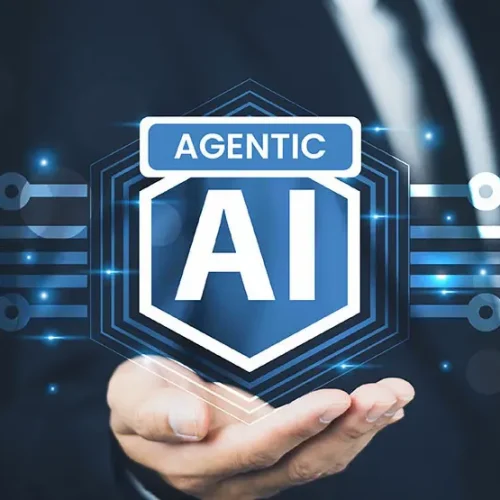Introduction
Artificial Intelligence (AI) is changing the way industries work. From healthcare and finance to eCommerce and customer service, AI is making things faster and smarter. But with all this progress comes responsibility.
Businesses must make sure their AI-driven solutions are fair, transparent, and free from bias. Ethical AI isn’t just about following rules—it’s about building trust, reducing risks, and creating long-term success. Companies that focus on responsible AI are not just avoiding legal trouble; they’re positioning themselves as leaders in ethical technology.
In this article, we’ll break down the core principles of ethical AI. We’ll also look at common challenges businesses face and practical ways to build AI systems that are fair, transparent, and responsible.
The Core Principles of Ethical AI
1. Transparency: Ensuring AI Decisions Are Explainable
One of the biggest challenges with AI is the “black box” problem. This happens when AI makes decisions, but no one really knows how. It can be frustrating and even risky.
Businesses need to create AI systems that explain their decisions clearly. When people understand how AI works, they trust it more. Plus, companies can take responsibility for AI’s choices, making sure they align with ethical standards.
2. Fairness & Bias Reduction in AI Models
AI models rely on the data they are trained with. If the data is biased, the AI can make unfair decisions. This can be a big problem, especially in hiring, lending, and healthcare.
To avoid this, businesses need to test their AI models carefully. They should check for bias and make sure their AI systems treat everyone fairly. Regular monitoring and improvements can help create AI that makes better and more ethical decisions.
3. Accountability: Defining Responsibility for AI Outcomes
Who takes the blame when AI makes a bad decision? That’s a big question. Businesses need to have clear rules about who is responsible when AI goes wrong.
AI shouldn’t be left to make big decisions on its own. People need to be involved, especially in critical areas like hiring, finance, and healthcare. Companies should set up guidelines to make sure humans oversee AI processes. That way, mistakes can be caught before they cause problems.
4. Privacy & Data Protection in AI Applications
AI often relies on vast amounts of data, raising concerns about user privacy. Companies must comply with data protection regulations such as GDPR and CCPA while ensuring AI models respect user consent and minimize data collection where possible.
Ethical AI in Action: Best Practices for Businesses
1. Implement Ethical AI Frameworks
Businesses need to follow ethical AI guidelines to make sure their technology is fair and transparent. It’s important to have human oversight so AI doesn’t make decisions on its own without checks and balances.
Some great examples of ethical AI guidelines come from Google’s AI Principles and the European Union’s AI Ethics Guidelines. These provide helpful rules for companies to ensure they’re using AI responsibly.
2. Human Oversight in AI Decision-Making
AI should help people make better decisions, not replace them. In critical areas like healthcare and finance, human involvement is key.
Imagine an AI diagnosing a medical condition or approving a loan. If it makes a mistake, the consequences can be serious. That’s why businesses need real people overseeing AI decisions to catch errors and make sure things are fair and accurate.
3. Compliance with AI Ethics Regulations
Governments and organizations around the world are creating new rules for AI. These policies are meant to make sure AI is used responsibly.
Businesses need to keep up with these changes. Staying informed helps them follow the rules and make sure their AI systems are ethical and fair.
4. How Leading Companies Are Using AI Ethically
- Microsoft has committed to AI fairness and released open-source tools to detect bias in machine learning models.
- IBM Watson emphasizes transparency in AI-powered healthcare solutions, ensuring doctors understand AI-generated recommendations.
- Google has implemented Explainable AI (XAI) to make AI decisions more interpretable and fair.
Addressing Common Ethical Challenges in AI
1. AI Bias & Discrimination: How It Happens & Ways to Prevent It
Bias in AI occurs when training data reflects historical inequalities. To counteract this, companies should:
- Use diverse and representative datasets.
- Regularly audit AI models for bias.
- Implement fairness-aware machine learning techniques.
2. Data Privacy Concerns in AI-Powered Applications
To protect user data:
- Adopt data minimization strategies (collect only necessary data).
- Use anonymization techniques to protect personally identifiable information.
- Provide users with transparency on how their data is used in AI models.
3. Deepfakes & AI-Generated Misinformation
AI-generated deepfakes and misinformation pose ethical risks. Businesses should:
- Develop AI tools to detect manipulated content.
- Implement watermarking or digital signatures for authentic AI-generated media.
- Promote digital literacy and awareness regarding AI-generated misinformation.
4. AI in Hiring & HR: Avoiding Discriminatory Algorithms
Automated hiring tools can inadvertently favor certain demographics over others. To ensure fairness:
- Maintain human involvement in final hiring decisions.
- Conduct bias audits on AI-driven hiring tools.
- Implement diversity-aware AI training methods.
AI Regulations & Governance
1. Global AI Regulations: What Businesses Need to Know
Countries are developing AI laws to ensure ethical AI usage. Key regulations include:
- CCPA (California Consumer Privacy Act): Sets guidelines for AI-related data handling in the U.S.
- The EU AI Act: Aims to regulate high-risk AI applications.
- GDPR (General Data Protection Regulation): Governs AI data privacy in Europe.
2. Industry-Specific AI Guidelines
Different industries have unique AI challenges. For instance:
- Healthcare: AI must comply with HIPAA for patient data privacy.
- Finance: AI models must adhere to anti-discrimination laws in lending.
- Retail & eCommerce: AI-driven personalization should not invade consumer privacy.
3. The Role of AI Ethics Committees & Internal AI Policies
Businesses should establish AI ethics committees to:
- Develop internal policies that ensure responsible AI usage.
- Monitor AI deployments for compliance with ethical standards.
- Review AI-based decisions for unintended consequences.
The Future of Ethical AI
1. The Evolution of AI Ethics: What’s Next?
As AI continues to advance, ethical considerations will evolve. Future trends include:
- AI auditing tools that automatically assess fairness and transparency.
- New laws and guidelines governing AI ethics at a global level.
- The rise of AI self-regulation practices by tech firms.
2. AI for Social Good: How Businesses Can Leverage AI for Positive Impact
Ethical AI isn’t just about avoiding harm—it can be a force for good. Companies can:
- Use AI to detect and prevent fraudulent activities.
- Leverage AI in climate change research and sustainability projects.
- Develop AI-powered tools that enhance accessibility for people with disabilities.
3. Responsible AI Innovation: Balancing Progress & Ethics
Companies need to find the right balance between pushing innovation and staying responsible. AI should always be designed with people in mind.
It’s not just about creating smarter technology—it’s about making sure AI benefits everyone. Businesses must ensure their AI aligns with human values and ethical standards, so progress doesn’t come at a cost.
Conclusion
AI is growing fast, bringing huge opportunities for businesses. But with great power comes responsibility. Companies need to focus on fairness, transparency, and data privacy. Doing this not only helps them follow regulations but also builds trust with customers and partners.
By using ethical AI, businesses can drive innovation while making sure AI benefits everyone. As AI continues to evolve, the goal should always be to create technology that improves lives, works fairly, and stays accountable. Ethical AI isn’t just a passing trend—it’s the key to AI’s future.



